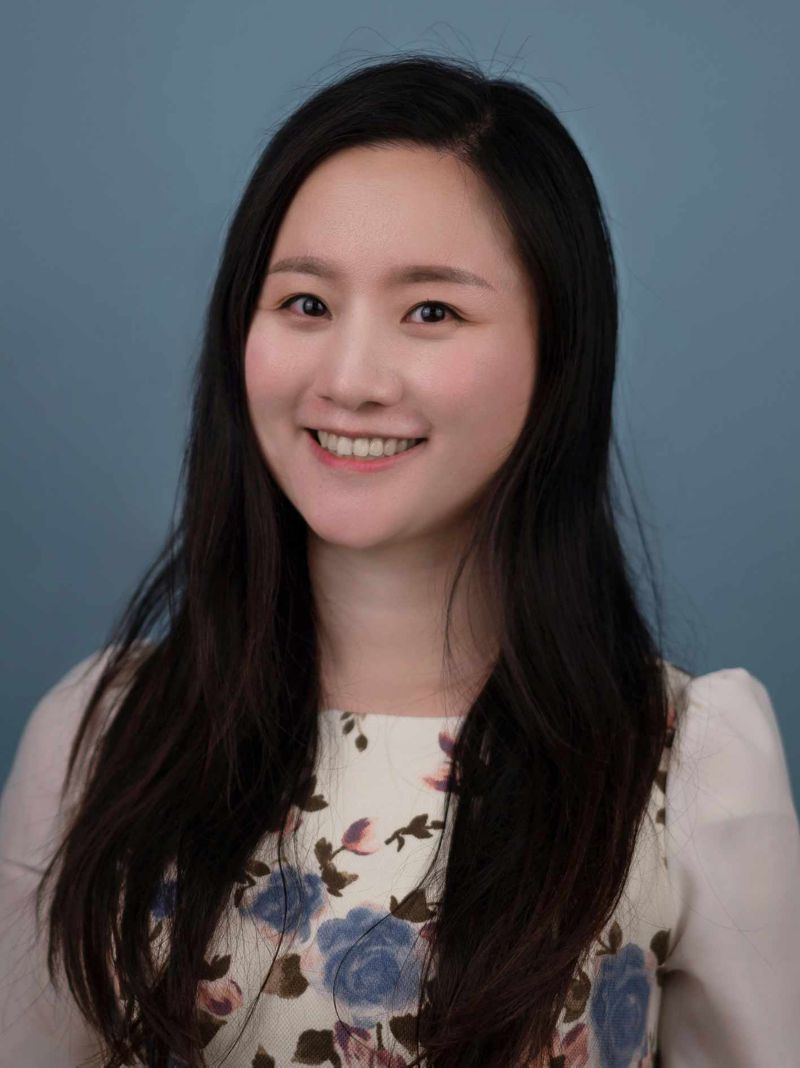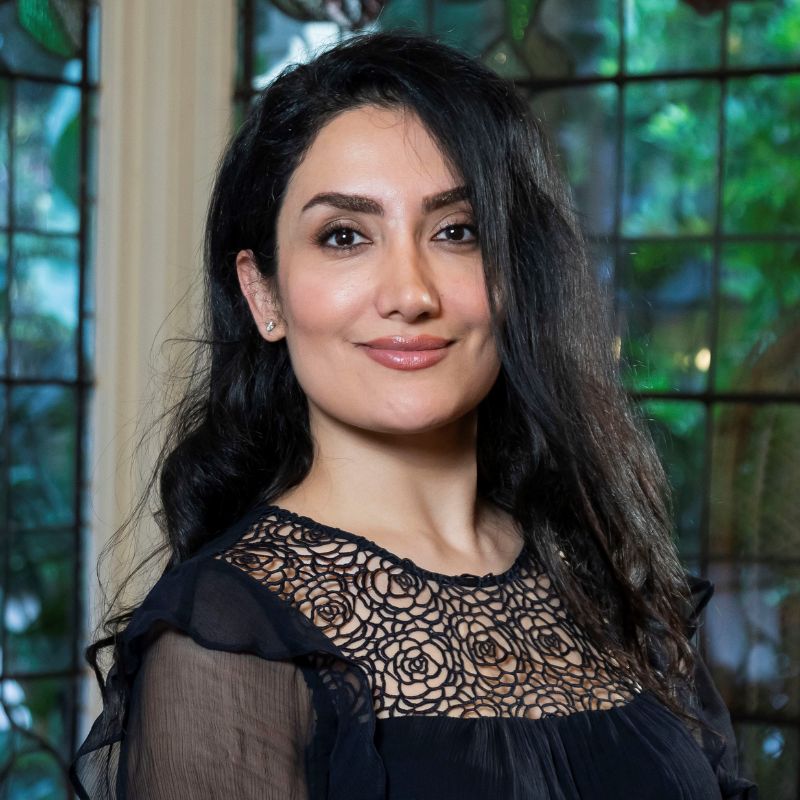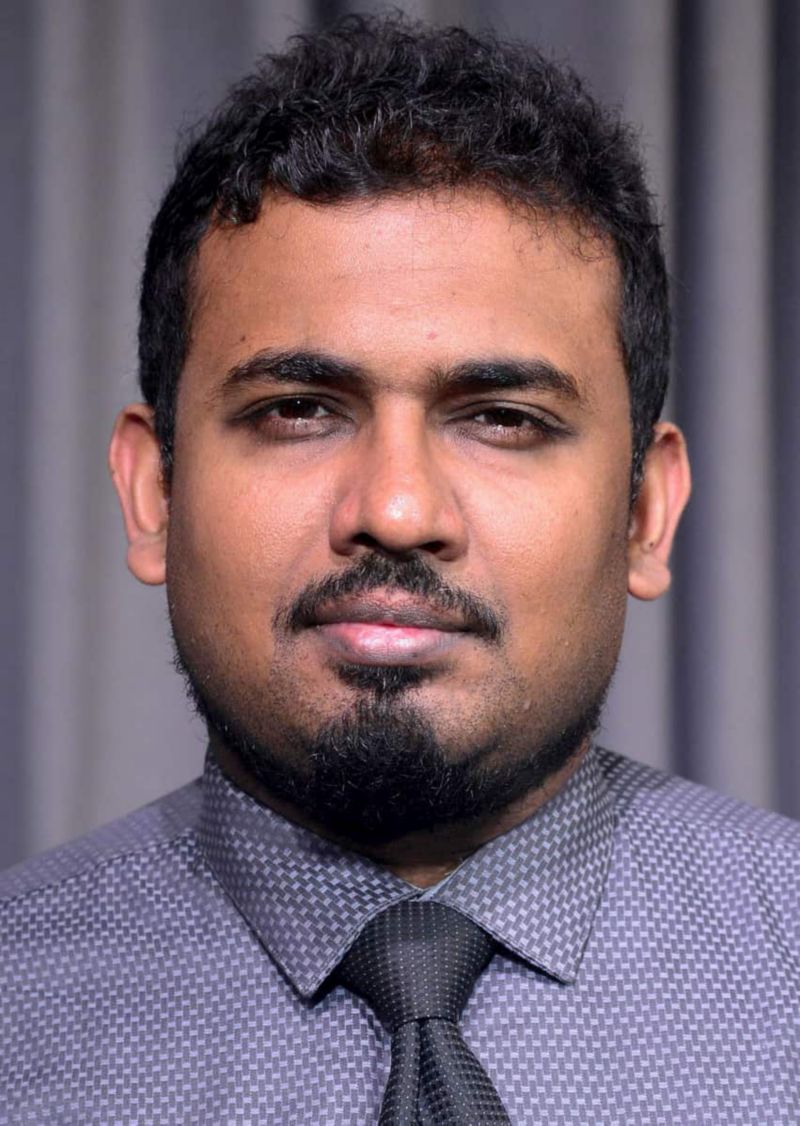
People


Dmitry Ryvkin is a Professor of Economics at RMIT University, where he joined the School of Economics, Finance and Marketing in 2023, and a Bernard F. Sliger Professor of Economics at Florida State University (currently on leave). Professor Ryvkin holds a Ph.D. in Economics from the Center for Economic Research and Graduate Education – Economics Institute (CERGE-EI) in Prague, as well as a Ph.D. in Physics from Michigan State University in East Lansing. In his research, Professor Ryvkin combines theory and laboratory experiments to address a diverse set of questions in applied microeconomics. His topics of interest include incentives in organizations, corruption and adverse behaviours, political economy, overconfidence, and games with dynamic externalities. View Dmitry Ryvkin's website.

Peyman is an applied microeconomist who applies behavioural and experimental methods in various contexts such as environmental markets, real estate, and the decentralised digital space. He received a PhD in Economics from the University of Sydney in 2014. Before joining RMIT he was a research fellow at the University of Queensland. He has published his works in top-tier journals such as Journal of Environmental Economics and Management, International Journal of Industrial Organization and International Journal of Game Theory.

Dr Janneke Blijlevens Janneke is a Senior Lecturer in Design Thinking and Experimental Methods within the Marketing Discipline. With a Masters in Psychology, a PhD in consumer behaviour and design, and work experience in both design and business schools her research is truly interdisciplinary. Janneke uses her ability to understand different ways of thinking to design innovative solutions to complex societal and business problems. Her approach uses behavioural insights obtained in both qualitative and quantitative research to affect positive behaviour change in society. Her research covers areas such as product (design) perception and evaluation by consumers, the social roles that products can play to consumers, how to design products for social change, and psychological factors influencing the adoption of highly innovative products by consumers. She has published in top-tier academic journals such as Psychology & Marketing, International Journal of Design, Journal of Psychology in Aesthetics, Creativity, and Arts, and Journal of Design, Business and Society.

Meg is a Senior Lecturer in economics in the school of Economics, Finance and Marketing at RMIT University. She is an applied economist with research interests in both development and cultural economics. Meg is particularly interested in policy and program evaluation in developing economies and in local communities. Further areas of interest are in arts programs, street performers, homelessness, youth curiosity, social protection, poverty reduction, and well-being. She has led a team evaluating the economic impact of the arts investment for the City of Melbourne and has grants from HERDSA. Meg is an award-winning educator in design thinking and business design having won the teaching excellence award for RMIT University and is now a national assessor for the Australian Universities Teaching Excellence Awards.

Jo is a Lecturer in Economics. She holds a PhD in Economics from the University of Exeter, a Masters in Behavioural Economics from the University of Nottingham, and a BCom (Hons) in Economics from the University of Canterbury. Using mainly experimental methods, Jo’s research focuses on cultural differences in decision making, especially in situations involving uncertainty or risk. She has presented the results from this work at conferences in the UK, The Netherlands, and China. Jo is also keen to apply behavioural insights to policy. During her PhD she completed an internship with a UK Government Department, where she applied ideas from behavioural economics to real-life problems. Her work has attracted funding from the UK’s Economic and Social Research Council, as well as numerous small grants from the University of Exeter’s Behaviour, Decisions and Markets Research Centre.

Qin joined the School of Economics, Finance and Marketing at RMIT in 2022. Her interests are mainly in the areas of experimental and behavioural economics, with a particular focus on efficiency in contests. With a strong theoretical and empirical background, Qin is committed to the development and robust testing of hypotheses. Her research primarily addresses topics such as the effective deterrence of cheating and collusion in contests, the impact of price competition on newsvendor inventory and pricing decisions, and the robustness of reciprocity and altruism in achieving pro-social outcomes. Her research project tackling the issue of doping in sports has been funded by the International Olympic Committee. Qin has presented her work at conferences in Australia and China, and values a multicultural approach to research. Before joining RMIT, Qin was a post-doctoral research fellow at the University of Adelaide, where she also completed her PhD in Economics in 2019.

Torgeir is a senior lecturer in marketing. His research relates to how consumers learn new behaviours.

Dr Bronwyn Coate is a cultural economist with expertise in the economic analysis of the arts and creative industries. Bronwyn’s research incorporates approaches from behavioural economics to study a range of topics including arts markets, creative labour and entrepreneurship as well as creative industries. Bronwyn actively engages with the arts and cultural sector and funding bodies to generate meaningful collaborations. She has worked on projects with the City of Melbourne to explore the economic impact of their arts programme as well as with the Australia Council for the Arts investigating how artists’ participation in the Venice Biennale influences their careers. Bronwyn has a proven track record of successful collaboration with multidisciplinary/transdisciplinary/industry partner research teams to address research issues and problems that deal with real world issues and have policy relevance.

Dr Ashleigh Druce is a lecturer in marketing in the School of Economics, Finance & Marketing. Ashleigh's research interests centre around using experimental methods to investigate the consumer psychology of the social transmission of information in online contexts.

Simon is a Professor in RMIT's School of Economics, Finance and Marketing. His research covers a wide range of topics in development economics including the use of behavioural and experimental methods.

Xiaolu is a Senior Lecturer in Finance in the School of Economics, Finance and Marketing. Xiaolu has extensive teaching experience in Behavioural Finance, Investment and Risk Management. Her areas of research are corporate decisions, investment decisions, ethical investment and emerging markets. She is interested in applying experimental methods to evaluate institutional and individual finance decisions. She has published her works in journals such as Journal of Banking & Finance, Finance Research Letters and International Review of Financial Analysis. Xiaolu has five years working experience in the finance industry, which facilitates her research and brings industry collaboration. She is also a CFA charter holder and actively involved in the CFA Melbourne society.

Fatima completed her PhD in Marketing in Monash University (2021). Her primary research area is consumer behaviour in retailing. She applies quantitative methods in her research, including experimental methodology and applied empirical analytics. In her research, she aims to solve real-world problems in various contexts, including healthy food consumption, alcohol consumption, fair-trade consumption, etc. Her research has been published in Marketing Journals such as Journal of Business Research, Journal of Retailing and Consumer Services and Current Issues in Tourism.

Lena is a Senior Lecturer in the School of Management at RMIT University. She teaches and researches in areas of work psychology and organisational behaviour, with a particular focus on personality, employee proactivity, leadership, and diversity management. She also has over 10 years of consulting experience on a wide range of areas, including leadership training and development, psychometric testing, talent assessment and management, among others. Lena has authored over 40 international journal articles, book chapters, and commissioned reports for government and industry, and has attracted over $600,000 external grants from government and industry. Her work has appeared in top-tier journals such as the Journal of Applied Psychology and Annual Review of Organisational Psychology and Organisational Behaviour. She currently sits on the editorial board of Human Relations and Applied Psychology: An International Review. Lena works closely with government and industry and has attracted approximately $1 million external grants from funding partners including, National Mental Health Commission, Queensland Mental Health Commission, Victoria’s Department of Premier and Cabinet, Wesfarmers, BHP Billiton, among others.

Xueting is a behavioural economist interested in self-control problems, valuation of rewards and decision-making in adolescence. In her research she takes an interdisciplinary perspective and her work is inspired by theory and empirical findings from economics, psychology and neuroscience. Her research goal is to discover and describe the mechanisms that govern human decision-making. Xueting also builds up her social responsibility: to use her personal and experience to cultivate the self-worth of women and to be a teacher to inspire my students to be more than they could be.

The unifying theme of Prof Jingjing Zhang's research is applying experimental methods to design better institutions for voting and committee decisions, rent-seeking contests, resource allocations, collective decision-making under risk, auctions, markets and matching. She has published in top journals including The Economic Journal, Games and Economic Behaviour, Experimental Economics, etc. She was awarded grants from the Australian Research Council, U.S. National Science Foundation, Swiss National Science Foundation etc.

Dr Gaoping Zheng is a Lecturer (Assistant Professor) in Finance. She joined RMIT in 2020. Before joining RMIT, she accumulated academic working experience at Southwestern University of Finance and Economics in China, at Victoria University of Wellington in New Zealand and Monash University in Australia. Her research interests are in the aspects of corporate finance, corporate governance, and behaviour finance. She has published academic papers in the leading finance and accounting journals, such as Journal of Financial Economics, Journal of Banking and Finance, Journal of Management Accounting Research. She is also a passionate educator who had won the student-nominated CoBL Learning and Teaching Impact Award.

Dr. M. S. Balaji is an Associate Professor of Marketing at RMIT University, researching services marketing, sustainability marketing, consumer behavior, and AI/Technology in marketing. His work explores how people make decisions, how businesses can communicate sustainability effectively, and how service experiences shape customer perceptions.

Richard Ramsawak is currently a Lecturer in Economics and Interim Senior Program Manager – Economics at the Royal Melbourne Institute of Technology (RMIT), former Head of the Center of Strategy and Competitiveness – Arthur Lok Jack Global School of Business, University of the West Indies and Director at Competitive Insights and Data Analytics Services Limited (CIDA). He has significant experience coordinating the development and implementation of national level strategic plans and competitiveness initiatives domestically and internationally. Richard has participated as a Facilitator for the Inter-American Development Bank (IADB) sponsored Caribbean Growth Forum and acted as lead consultant for the Competitive Analysis of the Southwest and 4C Growth Poles of Trinidad and Tobago, a project commissioned by the Economic Development Board of the Ministry of Planning and Development.

Dr. Nhung Vu is a development economist with a specialisation in microfinance, women's empowerment, and impact evaluation. She is a lecturer in Economics at the School of Business Management at RMIT University in Vietnam. Dr. Vu earned her PhD in Economics from the University of Groningen, Netherlands. She also holds an M Phil in International Economics and Business and an MSc BA in Finance from the same institution. Her interests span Small and Medium Enterprises, Lab and field experiments, and corporate finance. Dr. Vu has extensive experience working collaboratively with NGOs and as a research team leader and evaluation specialist. She has published numerous articles in academic journals, including Management Science, World Development, Applied Economics, and Economics Letters, among others. At RMIT University, Dr. Vu teaches courses such as Applied Econometrics, Business Statistics, Business Data Analytics, Behavioral Economics and Financial Markets.

Van Ha holds a Ph.D. in Economics from The University of Waikato, New Zealand. She is a lecturer in Economics at RMIT Vietnam. Prior to RMIT, she worked for the University of Waikato as a part-time lecturer for a year and for the Vietnam University of Commerce for over 12 years. Her current research interests include firm performance, foreign investment, intuitions and firm behaviors. She has a number of publications in several journals such as International Economics, World Economy, Journal of Economic Studies, International Archives of Occupational and Environmental Health, and International Journal of Emerging Markets.

4x TEDx speaker, MIT alumnus, and YouTube creator. World-renowned corporate leadership and scientific advisor at AgnisStibe.com. Offers an authentic science-driven STIBE method and practical tools for achieving hyper-performance with human artificial intelligence. Acting Associate Head of Business Innovation Department (Research) and Co-Lead of the Centre for Business and Emerging Technologies (CBET) at The Business School of RMIT University Vietnam. Extraordinary Professor of Artificial Intelligence for Society 5.0 at the University of Pretoria. Adjunct Professor of Transforming Business Systems at the University of Oulu. Established research on Persuasive Cities at the prestigious Massachusetts Institute of Technology. Advised the SoCity DAO project team at the MIT Media Lab. This first-of-its-kind decentralized prosocial platform empowers urban citizens to make their communities more livable and cities hyper-performing. The STIBE method helps gain confidence and build resilience against everyday circumstances. It drives stressless hyper-performance at work and certainty in life.

Adrian is a senior lecturer in marketing at the University of Technology Sydney. His research attempts to understand, explain, and predict human judgment and decision-making.

Rob is a Professor of Behavioural Economics at the Tasmanian School of Business and Economics and a former chair as well as founding member of the Behavioural Business Lab. His research areas are in behavioural economics. Most of his work deals with decision making in social and strategic situations. He is particularly interested how culture, religion and other social identities affect how people interact. His research has attracted significant amounts of funding from governmental agencies and research councils in the UK, the US, and Australia.

Swee Hoon is Professor of Economics at the Tasmanian School of Business and Economics and also a former founding member of the Behavioural Business Lab. She holds a PhD in the area of experimental behavioural economics from the University of Nottingham in the UK. Swee Hoon’s research expertise lies in cross-cultural experimental economics where she investigates the impact of cultural factors such as values, religion and social identity on economic behaviour. She also uses experiments to study behaviour in online environments. Her research has attracted significant amounts of funding from governmental agencies and research councils in the UK, the US and Australia, and has been published in highly-ranked international journals such as European Economic Review, Journal of Economic Behavior & Organization, Experimental Economics, Journal of Economic Psychology, Theory & Decision and Small Business Economics. She recently spent six months on secondment to the Behavioural Economics Team of the Australian Government (BETA) in Canberra where she worked as an advisor on various projects applying behavioural insights to public policy.

Ananta is a Senior Lecturer in Economics at the University of Tasmania specialising in Behavioural, Development and Experimental economics. His academic research focuses on the impact of social institutions (like gender norms) on individual decision making and behavioural effects of rewards. He has successfully published his work in top-tier economics journals such as the Journal of Economic Behaviour and Organization and Economics Letters. Ananta also has conducted multiple impact evaluation projects and has provided consultancy services to Plan International, World Bank, International Organization for Migration, Swiss Development Corporation and the Consumer Policy Research Centre. Ananta received his PhD from Monash University in 2014.

Dr Daniel Richards' research is based in two academic disciplines; behavioural finance and personal financial planning. For behavioural finance, his research focuses the use of emotions in financial decision making and decision-making bias exhibited by stock market investors. His publications are in journals such as the Journal of Economic Psychology and The European Journal of Finance.

Olga is an Associate Professor of Finance at the University of Stavanger with specialisation in behavioural and experimental finance. She studies how market institutions shape the behaviour of participants, their decision to hold assets, and report on the quality of goods in the market. Her research also focuses on gender differences in a variety of games. She has published in journals such as the Journal of Financial Intermediation, Review of Finance, Games and Economic Behavior, and the Journal of Evolutionary Economics. Olga received her Ph.D. in Economics from University of California, Santa Cruz.

Ahmed's work draws insights and methods from economics, psychology, and other social sciences. He has worked on consultancies for the Consumer Policy Research Centre, the Department of Industry, Innovation, and Science, the Victorian Department of Premier and Cabinet, and the Victorian Department of Health and Social Services. His research has appeared in renowned international journals, including the European Economic Review and the Journal of Economic Psychology. He received a PhD in economics from Monash University in 2015.

Prasad is a PhD candidate in the School of Economics, Finance and Marketing at RMIT University in Melbourne, Australia and attached to its Behavioural Business Lab. He completed his bachelor's degree and postgraduate diploma at University of Peradeniya, Sri Lanka. Also, he holds a master's degree in psychology from Nottingham Trent University, UK. His key research interest is on decision making in social and organizational settings. He is particularly interested in how evolutionary psychology, and moral psychology affect economic decision making.

Nadja is a PhD candidate in the School of Economics, Finance & Marketing. Her research interests revolve around the influence personality factors have on differential perceptions of information and how those shape how we perceive communications and impact decision making. Further research interests lay in the application of experimental design and statistical analysis combined with a focus on psychological research.

Giang’s research interest is applied economics, especially in the context of developing countries.
Huong-Giang Pham is an economics PhD student at the School of Economics, Finance and Marketing, RMIT University. Giang completed her Master’s degree in economics from Monash University in 2015.
Currently, Giang is investigating what factors influence Vietnamese farmers’ preference for the adoption of Sustainable Agricultural Practices (SAPs). She is applying microeconometric techniques to explore this subject. As one part of her thesis she conducted a discrete choice experiment to explore what characteristics of SAPs coffee farmers in Vietnam value most.
Before joining RMIT as a PhD student, Giang was a lecturer in environmental economics at a Vietnamese university.

Johanna Prasch is a PhD student and research assistant in the School of Economics, Finance and Marketing and the BBL. She completed her Master’s degree in psychology from the University of Bamberg, Germany, in 2017. During her Master’s degree, Johanna spent four months at RMIT University for a research internship. Knowing the great academic team and the inspiring work environment already, Johanna started her PhD program in the BBL in February 2018. For her PhD in consumer behaviour, she got awarded a Stipend Scholarship from RMIT University. Johanna’s research interests centre around combining experimental methods from psychology and consumer behaviour for investigating mechanisms behind intercultural communication and behaviour. Currently, Johanna is investigating how to increase social inclusion and cooperation in a multicultural setting.

Rizal Adi Prima is currently a PhD candidate at the School of Economics, Finance, and Marketing RMIT University. Rizal completed his master’s degree in international economics and Development Economics from the University of Paris 1 Pantheon Sorbonne in 2008.
His research interest lies in topics at the intersection of behavioural and development economics, with a focus on applying insights from behavioural economics to refine government policies. He uses experimental methods ranging from laboratory experiments to lab in the field experiments and combines them with survey and administrative data to study fundamental problems relevant to development economics context. His most recent work studies misreporting and dishonesty prevalence in self-reported asset reports and how commitment to truth-telling and verification threats help improve data quality in Indonesia social protection reform.
In the past he has served as the head of the monitoring and evaluation team within a policy think tank under the office of the Vice President, Republic of Indonesia. He was intensely involved in large randomized control trials (RCT) impact evaluation of conditional cash transfer (CCT) in Indonesia, as well as other nationwide programs in Indonesia such as the rice for the poor and poor student cash support program evaluation.

Muhammad Ryan Sanjaya is an economics PhD student working on a thesis on the causes and impact of violence in Indonesia. Specifically, his research encompasses the long-term impact of the Aceh insurgency using a lab-in-the-field experiment (Photo: taking a break from a motorcycle trip to a remote Aceh village for an experimental session), and the role of cultural diversity in driving violence using district-level data. One of his chapters has recently been published and Ryan is expecting another one or two publications before the end of his study. Apart from his academic studies, he is also actively engaged in the RMIT Indonesian Studies Strategic Network and the Bendigo Australia-Indonesia community. He enjoys creating beautiful photographs—especially of his two little kids—and starts filming and editing videos too.


RMIT University acknowledges the people of the Woi wurrung and Boon wurrung language groups of the eastern Kulin Nation on whose unceded lands we conduct the business of the University. RMIT University respectfully acknowledges their Ancestors and Elders, past and present. RMIT also acknowledges the Traditional Custodians and their Ancestors of the lands and waters across Australia where we conduct our business - Artwork 'Sentient' by Hollie Johnson, Gunaikurnai and Monero Ngarigo.
More information